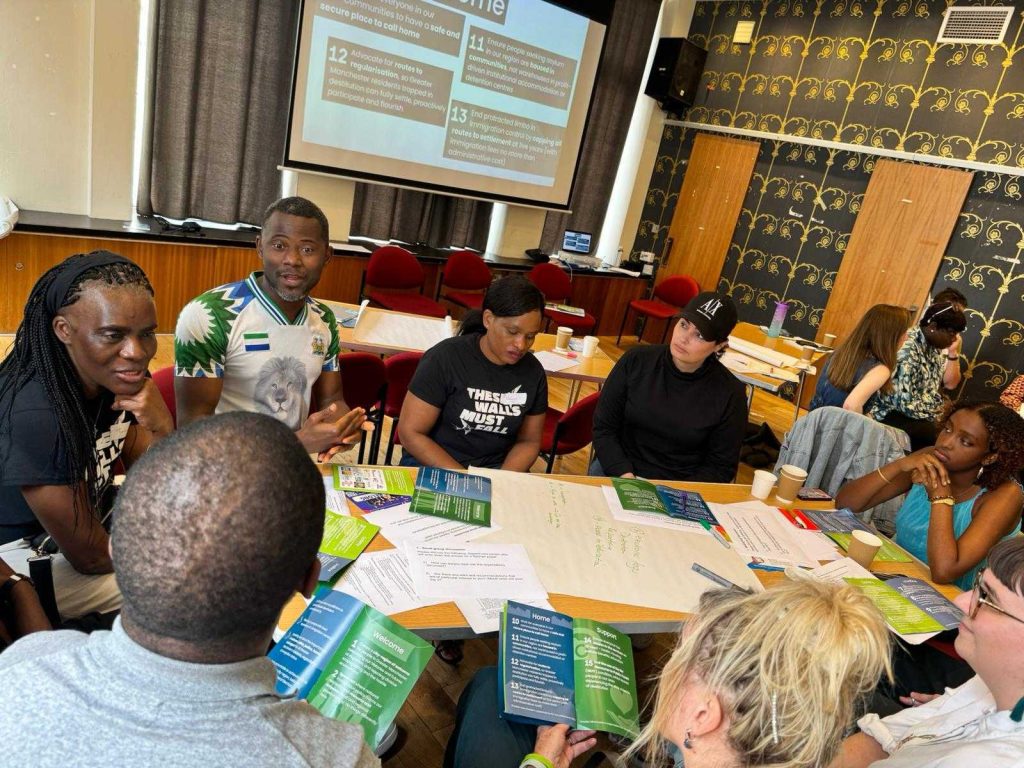
On July 18, Right to Remain held a special post-election Solidarity Session in Manchester. It was just two weeks into the new Labour government, and the day after the King’s speech, where the government laid out its intentions for the coming parliament, including a Border Security, Asylum and Immigration Bill.
Expectations for politicians in 2024
Throughout the day we used the document Our Expectations for Greater Manchester Politicians in 2024, drawn up by Greater Manchester Immigration Aid Unit.
This document, now co-signed by a growing number of local organisations and groups, provides a thematic framework for engaging local and regional politicians – MPs, local Councils, Combined Authorities, Metro-Mayors – in our efforts to roll back the hostile environment and create a more just society for all.
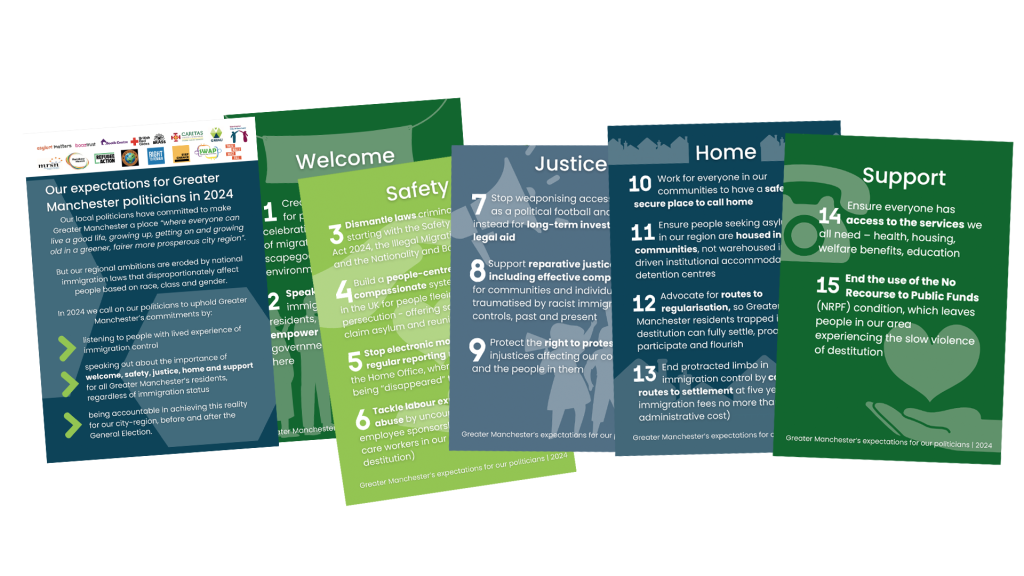
Through the Greater Manchester Strategy, our politicians have committed to make Greater Manchester a place “where everyone can live a good life, growing up, getting on and growing old in a greener, fairer more prosperous city region”. But we know that all too often our regional ambitions are eroded by national immigration laws that disproportionately affect people based on race, class and gender.
The signatories of the Expectations document are calling on all our politicians – representing the area in local, regional and national government – to uphold Greater Manchester’s commitments by:
- listening to people with lived experience of immigration control
- speaking out about the importance of welcome, safety, justice, home and support for all Greater Manchester’s residents, regardless of immigration status
- being accountable in achieving this reality for our city-region, before and after the General Election.
New government, same Home Office?
We started this session with a reflection on the general election period, noting that it arrived just as our communities were desperately responding to the Rwanda “Operation Vector” crisis. Although there was great relief when the new government ditched the Rwanda plan, people aired concerns about what will come next, with a “returns and enforcement programme” and 1,000 Home Office workers redeployed from Rwanda to focus on enforcement activities, detention and removals.
Two days after the meeting, the new Home Secretary, Yvette Cooper, confirmed our fears, announcing a summer of “returns and enforcement”. It appears that the new government in Westminster aims to continue with the racist hostile environment created by their predecessors. The focus on enforcement will only bring more fear and division, with immigration raids on communities and workplaces and people being dragged off to detention centres.
Community responses
In a discussion group led by Maggy Moyo, local Organiser with These Walls Must Fall, we discussed our options for responding to this renewed threat. Every programme of immigration enforcement has a serious impact on individuals and communities, we know that form the recent Rwanda detentions – people are scarred from this trauma.
Much of the discussion revolved around the immigration bail reporting centre at Dallas Court, in Salford. This is a place of detention, a place of fear, right here in our community. It was at Dallas Court where people were detained for Rwanda, at routine “signing” appointments. Volunteers from the new reporting centre solidarity group told the meeting of dozens of people turning up every day, clutching Home Office letters mentioning Rwanda, terrified that they might be detained and deported.
The group was asked what we could do locally, and what assistance could be sought from the local and regional authorities. Suggestions included:
- Financial and other help for the community groups providing essential information and support to people affected by immigration enforcement.
- Local authorities to monitor and report on the numbers of immigration raids and detentions, and their impact on individuals and communities.
- Provision of support services for people traumatised by immigration enforcement activities.
- Local authorities to endorse and support community campaigns to abolish immigration bail reporting and end detention
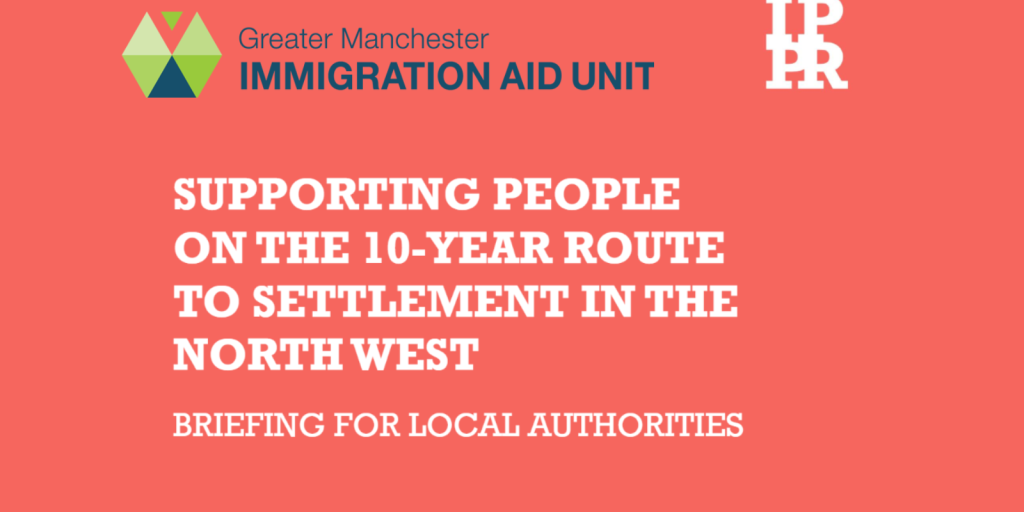
The 10-year route is holding people back
In another discussion group, facilitated by Fatou Jinadu, GMIAU’s Community Organiser, the focus was on the 10-year route to settlement, an immigration pathway for people who have a strong human rights-based reason to remain – either because they have children or a partner here, or because they’ve lived here for a long time.
This route to settlement is a lifeline for so many people – an estimated 170,000 at any time – but the high costs and many procedural obstacles mean that people are forced into precarious circumstances for long periods, leaving them vulnerable to losing their legal immigration status and potentially homeless.
Earlier this year, GMIAU published a joint briefing with the Institute for Public Policy Research (IPPR) on the 10 year route. Their report includes recommendations where local authorities can take practical steps to support local residents to overcome the barriers to settlement, and key advocacy asks for politicians, such as capping routes to settlement at five years, and reducing visa fees to administrative costs and abolishing the immigration health surcharge
Nothing about us, without us
The Right to Remain Solidarity Sessions are spaces where community groups and organisations meet to discuss migration justice issues, to organise and improve local support initiatives, and to build our solidarity and our power to bring change.
There is always so much power in these sessions, evidenced by the fact that it’s usually impossible to get people to stop having small group discussions, because they want to discuss more. Almost half of the 40 participants were people with lived experience; some attending as individuals, some as representatives of local groups. The importance of centering lived-experience was a recurring theme of the day. As These Walls Must Fall Organiser, Maggy Moyo said
“Too often we people with lived experience are, at best, consulted on policies. We have had enough of being consulted, we need to be involved, at every level.”
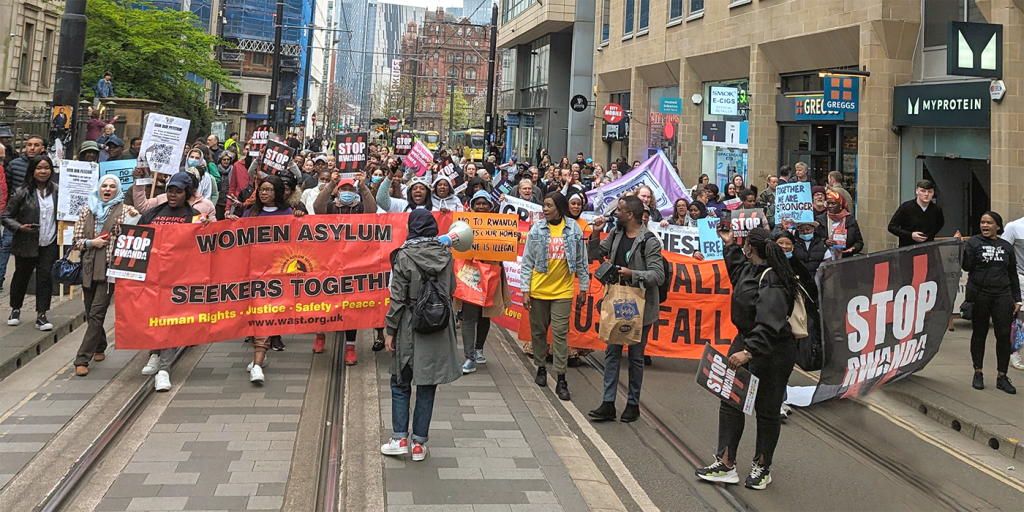

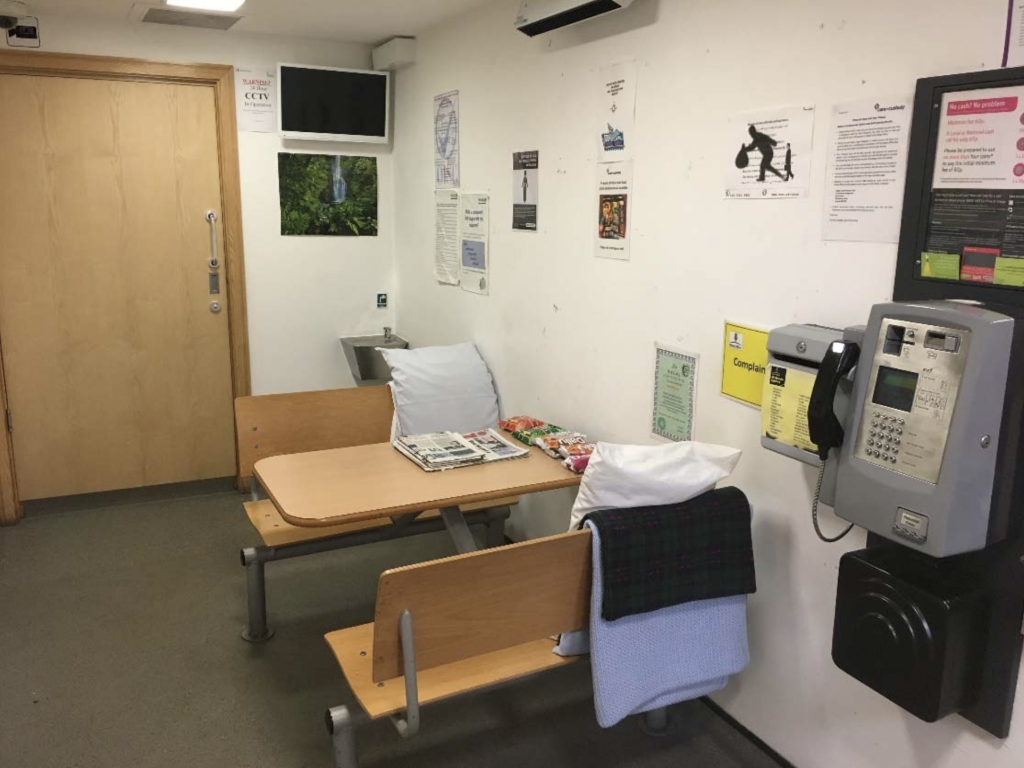
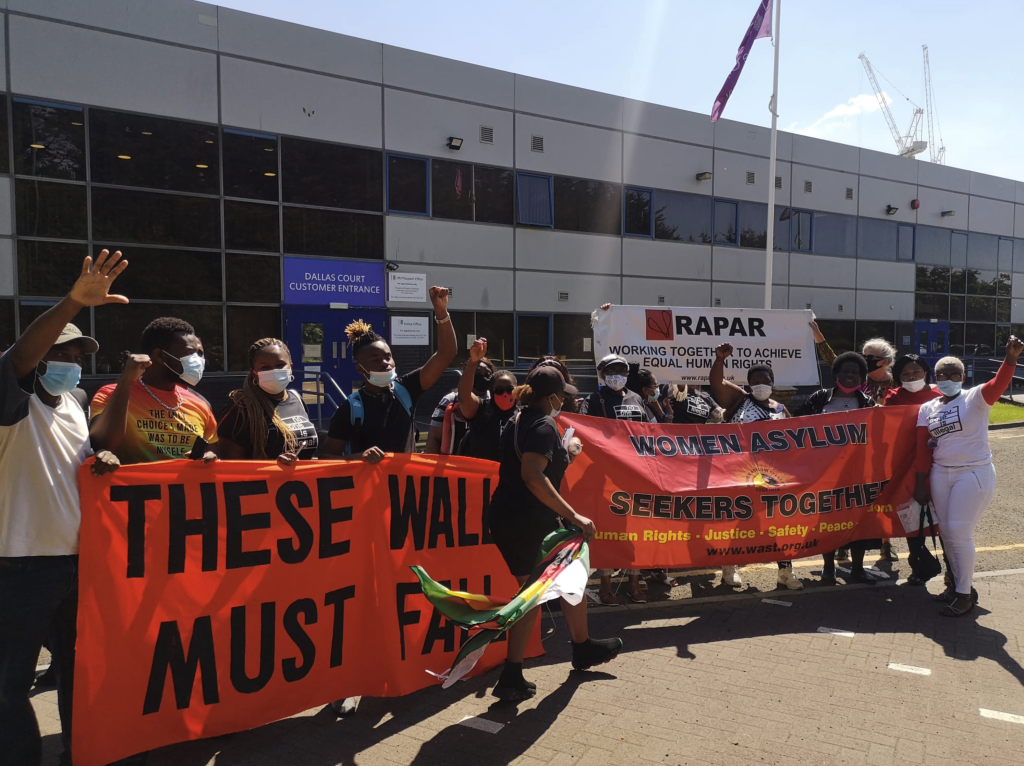












Discussion: